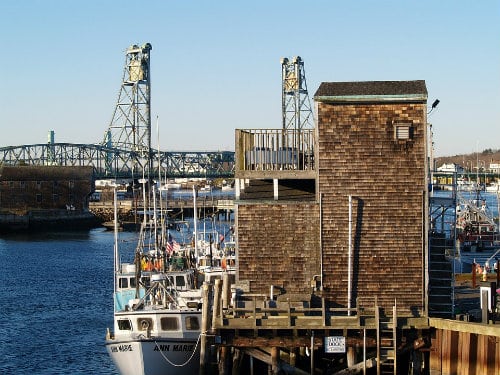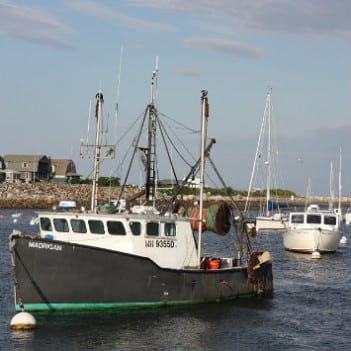If you’ve recently suffered an offshore work injury in New Hampshire, you may have several questions:
We can help explain your rights after a New Hampshire offshore injury. Contact us today for a free consultation with an experienced offshore accident law firm.
The Port of Portsmouth-Newington is New Hampshire’s only seaport, but it packs a big economic punch. Over 900 workers are directly employed at port facilities, and there are about 2,100 total New Hampshire jobs which directly or indirectly rely on port operations. Families in this community rely on these various jobs to support themselves and to continue building businesses and industries throughout the region.
While maritime work often provides a comfortable middle-class lifestyle, it also has some risks. Offshore and maritime work injuries are fairly common, and often result in serious financial and personal difficulties. While some of these occur due to unavoidable dangerous work conditions, many are the result of some form of negligence. When this is the case, injured New Hampshire offshore workers may seek damages from their employers under the Jones Act.
For more information on offshore injuries, visit: https://legalherald.com/offshore-injury/jones-act/


The Jones Act covers anyone who spends at least 30% of their work time contributing to the function of a vessel on navigable waters.
This includes, but is not limited to:
The Jones Act provides maintenance and cure benefits for all work-related injuries. These benefits include compensation for daily living expenses (maintenance) and medical expenses until maximum recovery is reached (cure). While all workers are entitled to these benefits, some maritime employers attempt to avoid paying them.
If negligence played a role in your injury, you may seek additional damages by filing a Jones Act lawsuit against your employer. These damages are similar to what you could recover in a personal injury claim, including pain and suffering, loss of quality of life, loss of earning capacity, and more.
If your vessel was unsafe at the time of your injury, you could also hold the vessel owner liable under the principle of unseaworthiness.
Workers who are not covered under the Jones Act may instead seek financial compensation in a Longshore and Harbor Workers’ Compensation Act (LHWCA) claim. This is a no-fault insurance form of compensation, which guarantees coverage regardless of how an injury occurred. However, filing a successful claim can be complicated and involves the complex statutes of maritime law, as well as resistance from insurance companies who specialize in denying claims.
If you’ve lost a loved in in a fatal offshore accident, there are also death benefits available for your family under both the LHWCA and Jones Act. Additionally, if the accident occurred more than 3 miles away from US waters, your family could recover compensation under the Death on the High Seas Act (DOSHA).
Maritime injury cases differ greatly from state-level workers’ compensation claims and personal injury lawsuits. Workers who suffer these injuries are covered under federal maritime laws which have unique characteristics. Additionally, claims are often made against powerful employer companies and their highly-paid, highly-skilled insurance companies and legal teams.
In order to give yourself a fair fight throughout the legal process, it’s usually necessary to have your own experienced maritime lawyer by your side. A knowledgeable and resourceful lawyer can help you gather all of the evidence you need for your claim, guide you through court appearances, and negotiate with insurance companies on your behalf. This way, you can make sure you get the full compensation you’re entitled to.
You can find out more about your rights in a free consultation. This way, you don’t have to commit to legal representation without first learning more about which laws apply to you. Additionally, our maritime lawyers work on a contingency fee basis, which means you pay nothing unless you win.
Learn More: How Much Can You Recover In A Jones Act Settlement?

 info@legalherald.com
info@legalherald.com